IMDEA Networks

"Como usuarios confiamos ciegamente en la tecnología sin llegar a entenderla"
05 Diciembre 2016
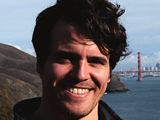
Entrevista a Narseo Vallina-Rodriguez, Research Assistant Professor en IMDEA Networks Institute; Investigador Principal en el International Computer Science Institute (ICSI) de Berkeley (EE.UU.).
1. Para empezar esta entrevista, nos gustaría conocer cómo nació su vocación científica ¿Cuándo y por qué decidió que quería ser científico?
Me resulta complicado responder a esta pregunta. Visto en retrospectiva, creo que ha sido un proceso bastante gradual y natural. Desde pequeño me sentí atraído por la ciencia pero también por otras áreas del conocimiento como la historia o las ciencias sociales. Mi infancia fue muy normal, pero mi entorno familiar y social me proporcionó suficiente estímulo como para mantenerme interesado por diversas materias. No obstante, hubo dos situaciones determinantes para que finalmente me animase a hacer el doctorado: primero, una oportunidad única para realizar el proyecto fin de carrera en la Universidad de Cambridge gracias a una beca de los Fondos Mineros; segundo, mi estancia como becario en el grupo científico de Telefónica I+D dirigido por Pablo Rodríguez en Barcelona.
2. ¿Qué cualidades personales y profesionales son importantes para los científicos-investigadores en su área de trabajo?
Creo que depende mucho de la personalidad de cada investigador. Sí es cierto que con el tiempo he podido observar ciertos patrones entre los investigadores sénior más reconocidos. Es importante ser una persona con curiosidades, con pensamiento crítico, auto-motivada, con capacidad de esfuerzo y, sobre todo, muy perseverante. La carrera investigadora es una carrera de fondo, muy competitiva y con altibajos. Tampoco dejaría de lado las aptitudes sociales y comunicativas. Son esenciales para establecer nuevas colaboraciones, obtener financiación, motivar a tu grupo y divulgar el conocimiento. Al final, todas las horas invertidas en el laboratorio caen en saco roto si se quedan en tu bloc de notas.
3. ¿Cuál es su formación y trayectoria como investigador? ¿A qué instituciones ha estado vinculado hasta ahora?
Gracias a la beca para realizar mi proyecto fin de carrera en Cambridge empecé a entender de qué trataba la investigación en realidad, a desarrollar la creatividad y a pillarle el gusto a este mundo. En Telefónica I+D adquirí una visión un poco más práctica y aplicada de la investigación, que se consolidó tras trabajar un año como ingeniero en Vodafone R&D en el Reino Unido. En 2009 regresé a la Universidad de Cambridge para empezar mi doctorado con Prof. Jon Crowcroft. Durante este tiempo realicé varias pasantías en laboratorios industriales como Deutsche Telekom Labs en Berlín o Telefónica. Tras acabar el doctorado en 2013, acepté un post-doc de un año en el grupo de Redes y Seguridad dirigido por el Prof. Vern Paxson en el International Computer Science Institute (ICSI) de Berkeley (EE.UU.). Mi intención era ir un año para aprender nuevas metodologías y poder profundizar en áreas hasta entonces un poco desconocidas para mí, como la seguridad de redes y la privacidad. Al final en 2014 me convertí en investigador principal, puesto que ahora compagino con IMDEA Networks desde Octubre.
4. ¿En qué circunstancias surgió la posibilidad de trabajar en IMDEA Networks? ¿Qué es lo que más le interesó de esta iniciativa?
La oportunidad de unirme al grupo de IMDEA Networks surgió por mi interés en desarrollar mi carrera científica en España. Me considero afortunado por tener la oportunidad de volver y poder contribuir dentro de mis posibilidades al desarrollo científico y educativo del país. Conozco IMDEA Networks desde mis primeros años de doctorado. De hecho, ya había visitado el instituto varias veces como estudiante. Me parece una iniciativa ilusionante que ha sido capaz de captar talento gracias a las facilidades que ofrece al investigador.
5. ¿En qué líneas de investigación va a trabajar y qué resultados concretos espera alcanzar?
Mi investigación se podría definir como “análisis empírico de sistemas en red”. El objetivo es analizar sistemas reales y tecnologías emergentes con el fin de entender el uso que se les da e identificar ineficiencias y abusos, sean intencionados o no. Como usuarios confiamos ciegamente en la tecnología sin llegar a entenderla. Por tanto, somos constantemente víctimas de abusos, ataques y violaciones de privacidad sin apenas darnos cuenta. Dos ejemplos relevantes pueden ser las aplicaciones móviles que usamos en nuestro día a día o nuevos paradigmas como el Internet de las cosas y las casas inteligentes.
Trabajo, por tanto, para que Internet sea más transparente y seguro para el usuario. Muchas veces implemento herramientas como el Lumen Privacy Monitor, una app que está disponible en Google Play, para informar a los usuarios de cómo las apps obtienen sus datos privados y con qué organizaciones los comparten. Estas herramientas nos proporcionan datos para realizar estudios, por ejemplo sobre abusos de privacidad en aplicaciones educativas y juegos infantiles—donde hay una fuerte regulación que es ignorada por los desarrolladores.
6. Sabemos que ha trabajado tanto en el Reino Unido como en EE. UU y de hecho sigue vinculado a la Universidad de California en Berkeley. En su opinión, ¿cuál es el impacto de la investigación española en su área de trabajo dentro del contexto internacional?
España está bien posicionada en el contexto mundial pero aún le queda mucho recorrido por delante para alcanzar el nivel de las universidades y empresas anglosajonas. Para ello, creo que sería necesario mejorar algunas idiosincrasias del modelo académico nacional que logren retener el talento y promover la competitividad, así como una apuesta institucional más fuerte por la investigación básica que pueda luego generar transferencia de tecnología. Sin duda en España hay capital humano y potencial. Sólo hay que ver los muchos ingenieros españoles con puestos de responsabilidad en Silicon Valley, la atractiva escena emergente de start-ups que hay en Madrid y algunos de los interesantes proyectos de investigación que se llevan a cabo en las universidades españolas.
|
|
|
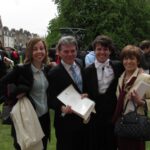 Con mi familia en 2014, tras la ceremonia de graduación en la universidad de Cambridge. Con mi familia en 2014, tras la ceremonia de graduación en la universidad de Cambridge.
|
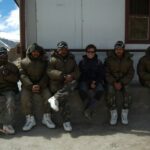 En la cima de Khardung La, la carretera transitable a mayor altitud del mundo, (5,359m, Ladakh, India) acompañado de soldados del ejército indio estacionado allí. En la cima de Khardung La, la carretera transitable a mayor altitud del mundo, (5,359m, Ladakh, India) acompañado de soldados del ejército indio estacionado allí. |
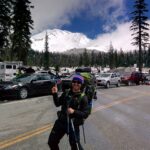 A punto de comenzar el ascenso del monte Shasta (4321m) en California, junio de 2016. A punto de comenzar el ascenso del monte Shasta (4321m) en California, junio de 2016. |
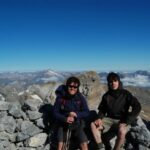 En la cima de Monte Perdido, Parque nacional de Ordesa, España, con mi hermano. En la cima de Monte Perdido, Parque nacional de Ordesa, España, con mi hermano. |


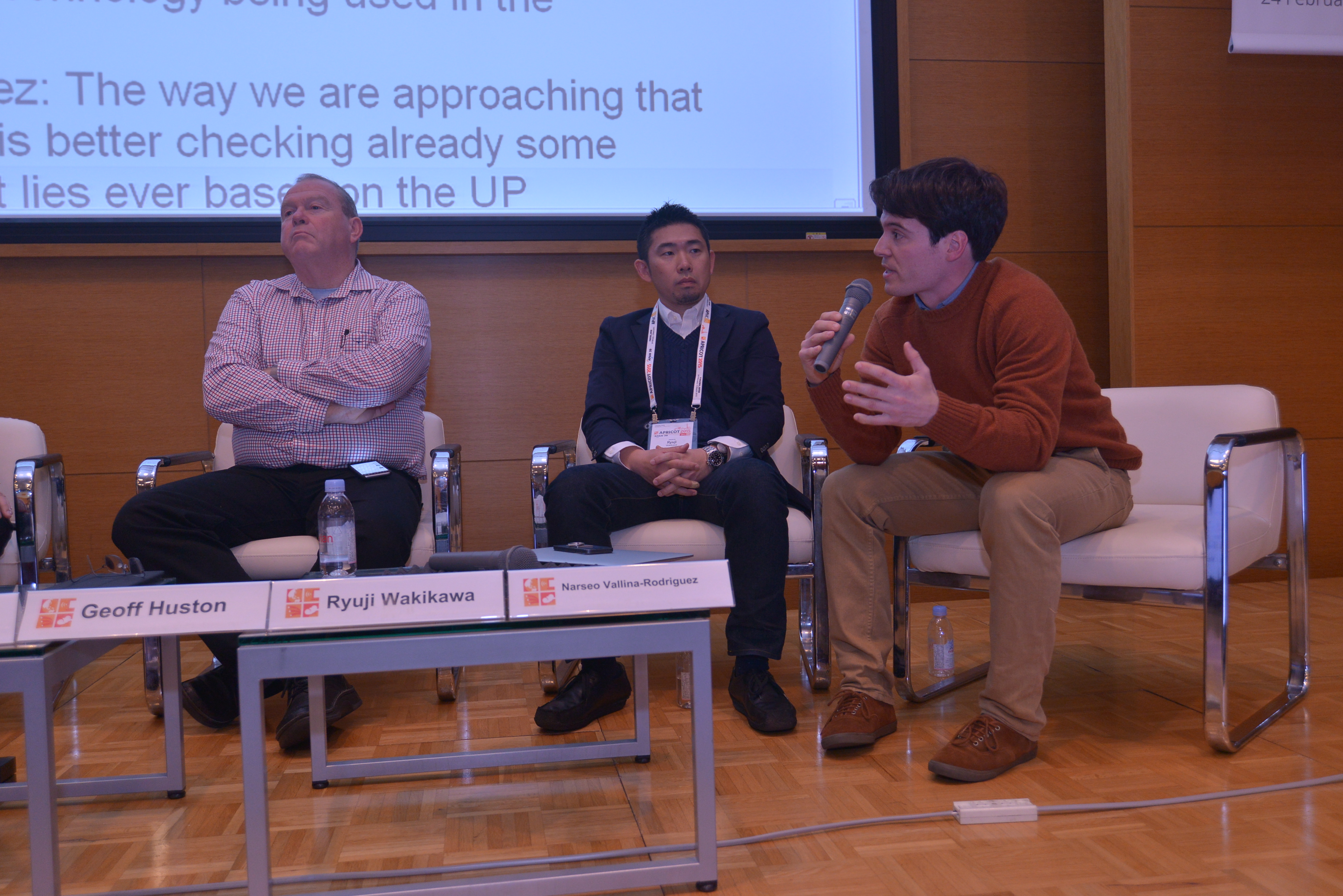 Ponencia en un panel plenario del congreso científico APNIC APRICOT 2015 celebrado en Fukoaka, Japón.
Ponencia en un panel plenario del congreso científico APNIC APRICOT 2015 celebrado en Fukoaka, Japón.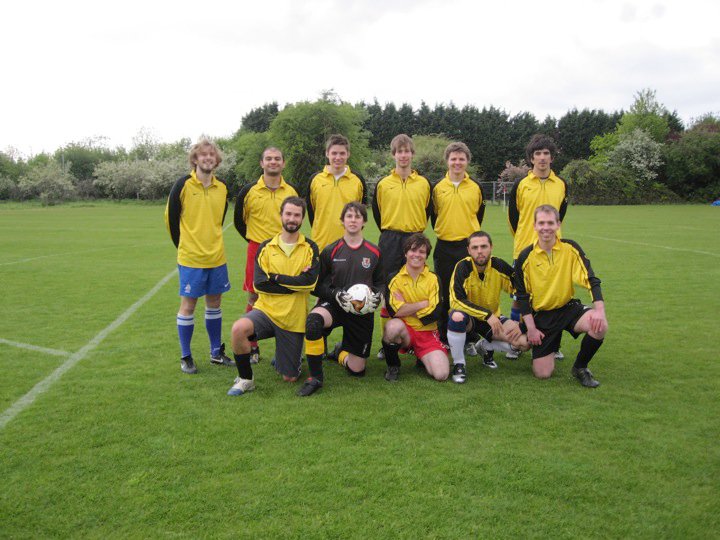 Con los miembros del equipo de fútbol de las facultades Fitzwilliam y Clare en Cambridge
Con los miembros del equipo de fútbol de las facultades Fitzwilliam y Clare en Cambridge
Comentarios recientes